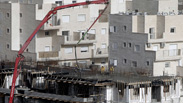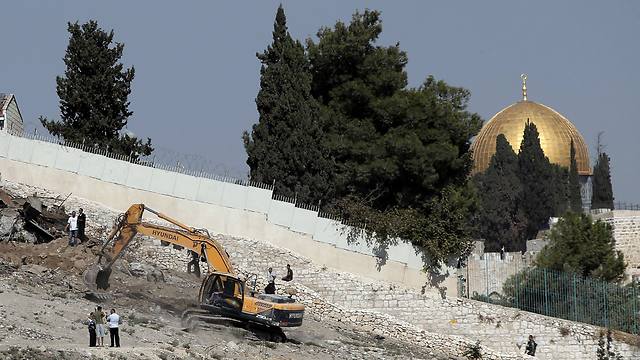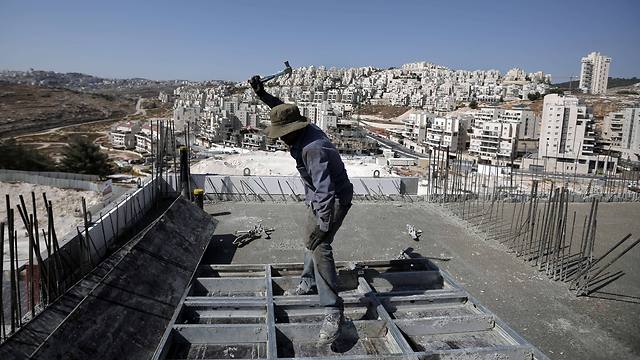
Israel approves 200 new homes in east Jerusalem
Despite recent violence, planning committee tentatively authorize new housing units to be built on private land owned by haredi group.
Amnon Arbel, the deputy head of planning in the Jerusalem municipality, said a planning committee approved the project Wednesday in the Ramot area. Arbel said the project needs to clear other hurdles and construction is years away.
An attack against a mosque in a West Bank village earlier Wednesday ignited a fire that destroyed its first floor, an assault the village's mayor blamed on Jewish settlers. The attack came against the background of competing claims to a holy site in Jerusalem's Old City.
Brachie Sprung, a spokeswoman for the municipality, said city officials approved 200 homes in the Ramat area. Sprung said the approval was just a preliminary stage of the planning process – meaning construction would be years away.
She also said city officials approved an additional 174 homes for construction in an Arab neighborhood.
At the begining of the month, a government committee advanced plans for 500 settler homes in East Jerusalem, an official said, in the face of disapproval from the United States at construction beyond the Green Line.
The Interior Ministry panel's preliminary approval of the new homes for Ramat Shlomo, a neighborhood built on West Bank territory captured in the 1967 Six-Day War and annexed to Jerusalem in a move not recognized abroad, was kept low profile in an apparent bid to avoid friction with Washington.
The plans have been postponed for several years because of low chances they would be approved, but approved in an unscheduled meeting after Netanyahu gave his blessing to construction in the capital.
The new housing units will be built on private land that belongs to a haredi group, and will join the construction of some 1,600 other housing units already approved that will be built on Israel Land Authority lands. The 500 new housing units will be built in an area between the haredi Ramat Shlomo neighborhood and the Arab Beit Hanina.
This is only the first step in a long series of approvals needed before actual construction can begin and the process should take years. Still, it is likely to further upset Washington, which has condemned the plans amid rising tensions in the city.
A week ago, Prime Minister Benjamin Netanyahu ordered plans for some 600 housing units for Ramat Shlomo and another 400 for Har Homa, another East Jerusalem neighborhood, to be advanced.
Palestinian officials have voiced alarm – echoed in the international community – over the settlements, viewing them as a main obstacle to founding the independent state they seek in the West Bank and Gaza Strip with East Jerusalem as its capital.
An Interior Ministry spokeswoman did not immediately confirm Monday's committee decision, details of which were relayed to Reuters by an Israeli official on condition of anonymity.
The official said Israel hoped to avoid publicity around the move, one in a series of logistical and legal stages before construction begins. The number of new homes planned for Ramat Shlomo had been reduced, the official said, due to environmental concerns.












